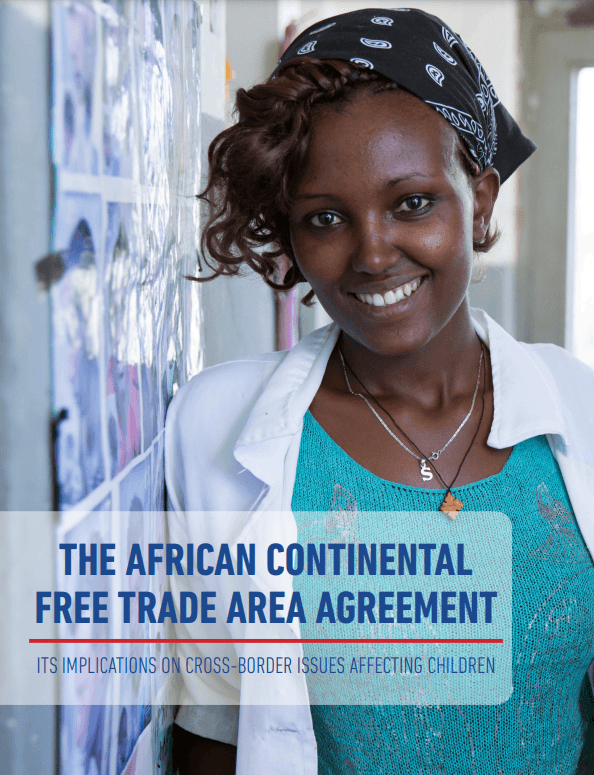The African Continental Free Trade Area: Implications on cross-border issues affecting children
This report examines the effect of the African Continental Free Trade Area (AfCFTA) on cross-border issues affecting children.

The AfCFTA was launched in 2018 and ratified in Niger in July 2019. The agreement promises to create a US $2.5 trillion market by removing trade barriers and enabling the movement of Africans across borders.
Increased intra-Africa trade will avail opportunities through expanding job opportunities. Both formal trade and informal cross border trade will grow as the continent reaps the benefits of closer regional cooperation.
Free trade can increase risks for children
Trade agreements can have positive and sometimes negative impacts on vulnerable groups. For example, for groups such as children and adolescents, increased cross border trade could exacerbate ongoing challenges like child marriage, commercial sexual exploitation of children and child trafficking.
Also, increased trade and the associated expansion of economic opportunities could push children out of school and into further engagement in child labour within an environment of poorly enforced child labour laws.
Against the above background, the Girls Advocacy Alliance comprising of Plan International African Union Liaison Office, Terre des Hommes Netherlands, ECPAT International and Defence for Children International (DCI-Sierra Leone) commissioned a study titled “The African Continental Free Trade Area Agreement: Its Implications on Cross-Border Issues Affecting Children”.
Download report
Full report
2 mb
Protection from violence, child marriage, Migrant and displaced children, Out-of-school children